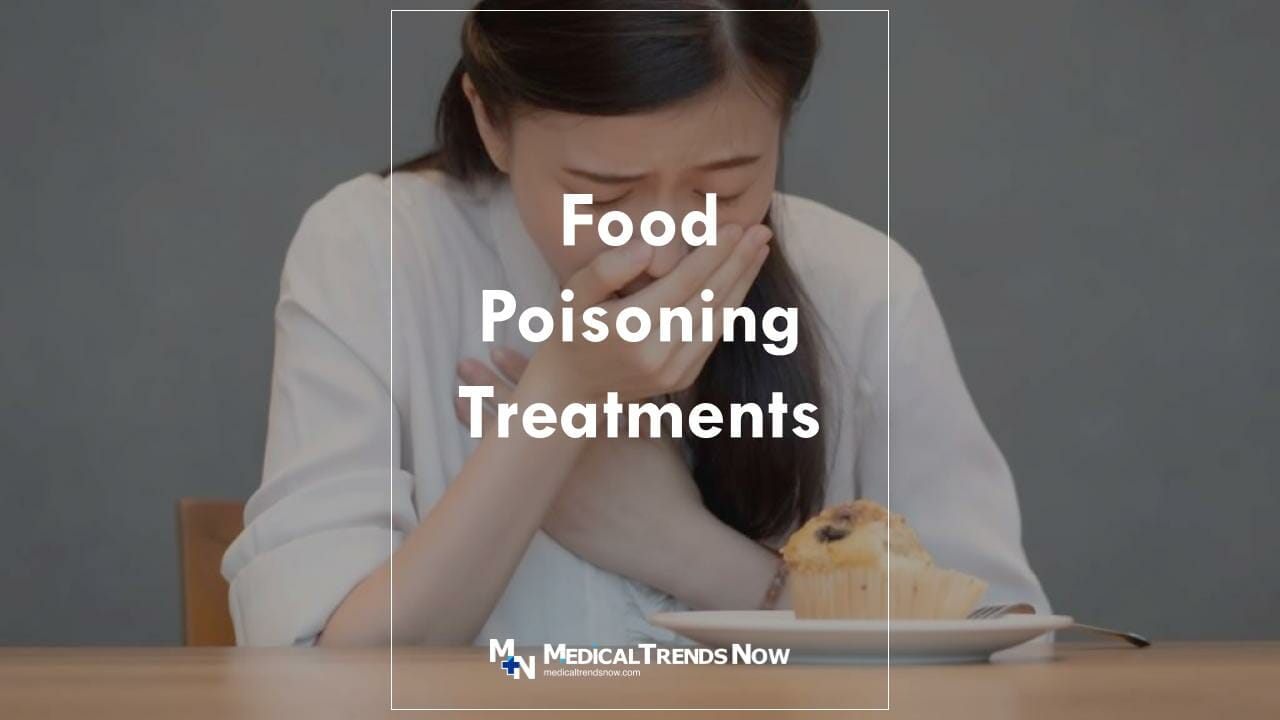Table of Contents
Food poisoning is a common health concern in the Philippines, and knowing how to treat it safely and effectively is important. Although symptoms can vary, common signs of food poisoning include nausea, vomiting, diarrhea, abdominal cramps, and fever. In severe cases, food poisoning can also lead to dehydration and other serious health complications. This article will provide an overview of the various treatments for food poisoning in the Philippines, including home remedies and medical interventions.
Food Poisoning in the Philippines
Food poisoning is common in the Philippines, with over 5 million cases reported annually. The condition of the country’s food industry and the lack of proper food safety practices can often contribute to this issue. To address the problem, it is important for those affected by food poisoning to seek prompt medical attention and follow-up care to avoid any further complications from their illness.
The most common form of treatment for food poisoning in the Philippines is through antibiotics and hydration therapy. Filipino doctors may also recommend rest and medication to reduce pain or discomfort associated with vomiting or diarrhea, depending on the severity of symptoms. In more serious cases, hospitalization may be required for additional monitoring and treatment options such as intravenous fluids. Additionally, probiotics are becoming increasingly popular as an alternative way of treating gastrointestinal issues related to food poisoning.

Symptoms of Food Poisoning in the Philippines: Diarrhea, Vomiting, etc.
Food poisoning is a common condition in the Philippines that can cause severe discomfort and distress. The primary symptoms of food poisoning include diarrhea, vomiting, stomach cramps, and fever. These symptoms are typically caused by consuming contaminated food or water that contains harmful bacteria, viruses, or parasites.
If you are experiencing any of these symptoms, seeking treatment as soon as possible is important. There are several treatments available for food poisoning in the Philippines. Some of the most common treatments include rehydration therapy, antibiotics, and anti-nausea medications. Rehydration therapy involves drinking fluids to replace those lost through diarrhea and vomiting, while antibiotics can be prescribed to help combat bacterial infections. Anti-nausea medications can also be used to relieve feelings of nausea and vomiting.
Overall, if you suspect you have contracted food poisoning in the Philippines, it is important to seek medical attention immediately.

Primary Causes of Food Poisoning
Food poisoning is a common ailment in the Philippines, and several primary causes can cause it.
Common Causes: Bacteria, Viruses, Parasites
Food poisoning is a common ailment affecting thousands of people in the Philippines yearly. The most common causes of food poisoning are bacteria, viruses, and parasites. These microorganisms can contaminate food and water sources, leading to symptoms such as nausea, vomiting, diarrhea, fever, and stomach cramps.
The good news is that many treatments are available for food poisoning in the Philippines. If you suspect you have contracted food poisoning from contaminated food or water sources, you should seek medical attention immediately. Filipino doctors may prescribe antibiotics or other medications to help alleviate your symptoms and treat the underlying cause of your illness.
In addition to seeking medical treatment for food poisoning in the Philippines, it’s important to take steps to prevent future incidents from occurring. This includes practicing good hygiene habits such as washing your hands frequently and avoiding foods that have been left out at room temperature for too long.
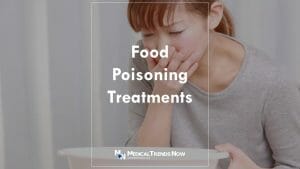
Contaminated Food
Contaminated food can cause various symptoms, from nausea and vomiting to severe illnesses that may require medical attention. Knowing the primary causes of food poisoning can help you take steps to prevent it and protect yourself and your family from becoming ill.
The most common causes of food poisoning are bacteria such as Salmonella, Campylobacter, Listeria monocytogenes, E. coli O157:H7, and Staphylococcus aureus; viruses such as norovirus; parasites such as Giardia lamblia; chemicals or toxins found in some foods.
Poor Hygiene Practices
Poor hygiene practices are one of the primary causes of food poisoning. It is essential for those involved in any stage of the food preparation process to have a sound understanding of safe food handling practices to reduce the risk of contamination.
Poor hygiene practices during any part of the food production cycle can cause cross-contamination between raw and cooked foods or lead to bacterial growth due to temperature abuse. Effective hand washing is key in preventing contamination, as hands are usually the biggest source of spreadable bacteria. Food handlers should also ensure adequate storage temperatures are maintained throughout every step so that potentially hazardous foods do not remain within a ‘danger zone’ where they might become unsafe for consumption.
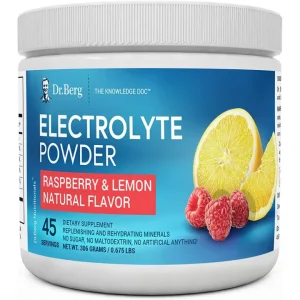
Undercooked Meats
Uncooked or undercooked meat products can contain certain bacteria that could cause food poisoning if ingested. These bacteria are destroyed when cooked to a proper temperature, but if not done so, the risk of contracting an illness drastically increases.
It is important for those who cook their own meals at home to be aware of the amount of time required for different meats to kill off any potential contaminants properly. If a thermometer isn’t used, there is no guarantee that the internal temperature has reached the safe zone to eliminate toxins, making it more likely that someone will consume dangerous bacteria levels.
Unsafe Storage Conditions
Its primary causes are related to the improper storage of food, as well as food being left at unsafe temperatures for too long. Unsafe storage conditions, such as leaving food out on the counter or not properly refrigerating items, can breed bacteria and other contaminants that cause food to become hazardous.
The most common sources of food contamination stem from environmental factors such as waterborne parasites and cross-contamination between raw and cooked foods. Chemicals can also contaminate improperly stored food products like pesticides or cleaning solutions used to process certain foods. Thus, it is important to exercise caution when handling edible products, especially perishables like dairy products or meats.
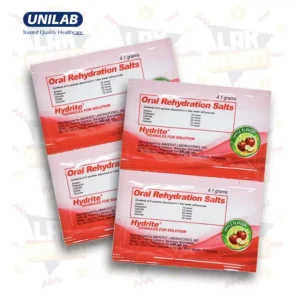
Home Remedies for Treating Food Poisoning
Fortunately for those living in the Philippines, several home remedies are available to help treat food poisoning effectively without visiting a Filipino doctor or hospital in the Philippines. Some of these home remedies include consuming clear fluids like water and herbal tea to replenish lost electrolytes; limiting dairy products until symptoms subside; taking probiotics to restore healthy gut bacteria; consuming bananas and potatoes containing resistant starches ease digestion; and eating ginger which helps reduce stomach discomfort.
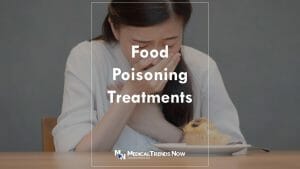
Traditional Treatments for Food Poisoning in the Philippines
Food poisoning is common in the Philippines, with reports of over 3 million cases yearly. The best way to treat food poisoning is to seek medical attention and follow the prescribed treatments. However, many Filipinos rely on traditional treatments they have used for generations.
It can be difficult to determine which treatments are safe and effective when treating food poisoning in the Philippines, as many folk remedies are practiced in different areas of the country. Some common traditional treatments for food poisoning include drinking plenty of fluids such as coconut water or herbal teas, eating cooling fruits like papaya or melon, and drinking herbal concoctions made from ginger or a combination of rice-based medicines. Additionally, depending on the region, some Filipino families may even use boiled chicken soup broth as an alternative remedy.
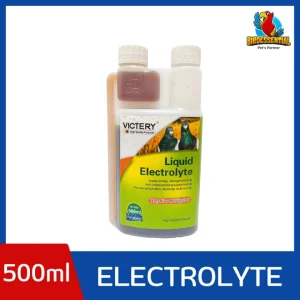
Medical Treatments for Food Poisoning in the Philippines
With statistics from the Department of Health show that food poisoning accounted for around 3 percent of all diseases reported in 2017. Medical treatment options are available when food poisoning strikes to help alleviate the effects and prevent further health damage.
The most important step when suffering from food poisoning is to drink plenty of fluids to prevent dehydration. Oral rehydration solutions or electrolyte drinks can be purchased over the counter at pharmacies nationwide and should be consumed in small amounts throughout the day. Alternatively, individuals can make their own solution by adding a pinch of salt and six teaspoons of sugar to four cups of water. If symptoms persist, seeking medical advice as soon as possible is important.
Advice for Seeking Medical Assistance for Severe Cases of Food Poisoning
When seeking medical assistance for severe food poisoning, it is important to follow some key advice. Firstly, seeking professional medical help as soon as possible is recommended to receive prompt and effective treatment. Secondly, when consulting with a Filipino doctor or healthcare professional about symptoms related to food poisoning, provide detailed information regarding any recent consumption of foods that could have been contaminated. Finally, if advised by a Filipino doctor or healthcare provider, it may be necessary for more comprehensive tests, such as blood tests and stool cultures, to diagnose and treat the condition appropriately and accurately.
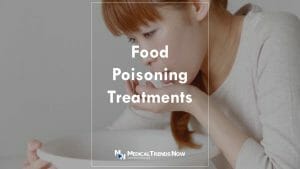
Treatment Options: Antibiotics, Rehydration
Food poisoning is a common ailment that affects many people in the Philippines. It occurs when one ingests contaminated food or drinks, leading to symptoms such as vomiting, diarrhea, nausea, and fever. Luckily, there are various treatment options available to help manage the condition and ease its symptoms. Two common treatments for food poisoning are antibiotics and rehydration.
Antibiotics can be effective in treating bacterial infections that cause food poisoning. However, it’s important to note that not all types of food poisoning require antibiotics. Only bacterial infections like salmonella or E.coli need antibiotic treatment. A healthcare provider will determine whether an antibiotic is necessary based on the severity of the symptoms and a laboratory test.
Rehydration is another important component of treating food poisoning. Diarrhea and vomiting can lead to dehydration, which can be life-threatening if left unchecked for too long.
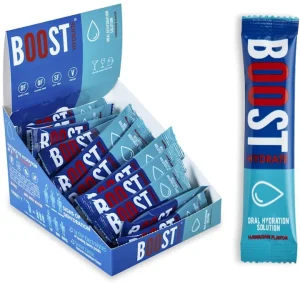
Prevention Strategies
Prevention strategies are key to avoiding food-borne illnesses and keeping people healthy. When food poisoning does occur, however, knowing how to treat it properly is essential.
Treatment for food poisoning in the Philippines depends on the severity of the illness, but there are a few general rules that anyone suffering from a food-borne illness should follow. Firstly, hydration is extremely important; drinking plenty of fluids helps replace lost electrolytes and reduces dehydration symptoms. Secondly, rest is also important; getting enough sleep can reduce exhaustion and help with recovery time. Finally, antibiotics may be prescribed by a Filipino doctor if necessary; these should be taken as directed. Additionally, eating small meals throughout the day instead of large meals can help with digestion and absorption of nutrients.

Good Hygiene Habits
In the Philippines, food poisoning is a common problem that affects many people. It often occurs when individuals consume food or drinks that are contaminated with harmful bacteria, viruses, or other pathogens. While there are treatments available for those who have already fallen ill from food poisoning, prevention strategies are critical to avoid getting sick in the first place.
One of the most effective prevention strategies for avoiding food poisoning is practicing good hygiene habits. This includes washing your hands thoroughly and frequently with soap and water before handling food and after using the restroom. Additionally, it’s essential to keep all kitchen surfaces clean and disinfected regularly to prevent cross-contamination of germs between foods.
Another critical aspect of good hygiene habits is ensuring that all foods are adequately cooked before eating them. Raw or undercooked meat can harbor dangerous bacteria like salmonella and E.coli that can cause severe illness in humans.
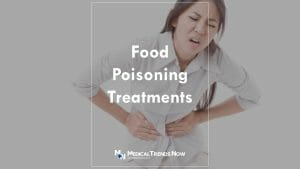
Diagnosis and Testing Procedures
Diagnosing and testing for food poisoning is crucial to identify the appropriate treatment for it. Food poisoning is a common health problem in the Philippines caused by eating contaminated food, leading to symptoms such as diarrhea, stomach pain, nausea, and vomiting. There are different types of food poisoning, each requiring specific tests and treatments.
One method used to diagnose food poisoning is stool culture testing. This test involves analyzing a sample of stool in a laboratory to determine if bacteria or other microorganisms are present that may be causing the illness. Blood tests can also be conducted to check for signs of infection or inflammation in the body. Additionally, Filipino doctors may ask about recent dietary changes and travel history to help identify possible sources of contamination.
Once diagnosed with food poisoning, treatment options vary depending on the type of infection contracted. For bacterial infections such as Salmonella and E.coli.

Traditional/Alternative Therapies
Traditional alternative therapies have been used for centuries by different cultures worldwide. In the Philippines, various natural remedies are commonly used to treat food poisoning. These traditional alternative therapies can be an effective way to alleviate symptoms and promote healing.
One of the most popular treatments for food poisoning in the Philippines is ginger tea. Ginger has natural anti-inflammatory properties and can help settle an upset stomach. To make ginger tea, grate fresh ginger into hot water and allow it to steep for a few minutes before drinking. Another commonly used remedy is coconut water, which can help rehydrate the body after vomiting or diarrhea caused by food poisoning.
Other traditional alternative therapies that may help treat food poisoning include turmeric, which is known for its antibacterial properties, and papaya seeds, which contain enzymes that can aid digestion and reduce inflammation in the gut.
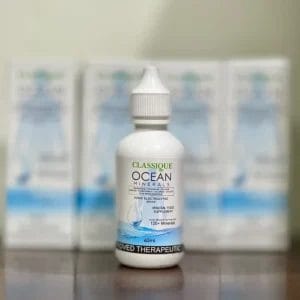
Additional Resources on Treatments for Food Poisoning in the Philippines
In most cases, treating food poisoning at home is a simple process that involves drinking plenty of fluids and taking pain relievers such as ibuprofen or acetaminophen when necessary. If symptoms do not improve after 24-48 hours or worsen over time, then seeking medical attention may be necessary. Additionally, several additional resources can aid recovery from food poisonings in the Philippines – such as finding advice from local healthcare practitioners or connecting with online support networks for helpful tips and information on treatments.
Final Thoughts: Treatments for Food Poisoning in the Philippines
In conclusion, food poisoning is a major health concern in the Philippines, with many people suffering from contaminated food each year. Everyone must take preventative measures to avoid becoming ill, like washing hands before and after meals and storing food safely. Treatment options available include traditional remedies such as charcoal tablets, herbal teas, and modern medications such as antibiotics. When food poisoning does occur, it is important to seek medical assistance quickly to reduce the severity of symptoms and prevent further complications.
Food poisoning is a common health concern in the Philippines, and knowing how to treat it safely and effectively is important. Although symptoms can vary, common signs of food poisoning include nausea, vomiting, diarrhea, abdominal cramps, and fever. In severe cases, food poisoning can also lead to dehydration and other serious health complications. This article will provide an overview of the various treatments for food poisoning in the Philippines, including home remedies and medical interventions.
Sources
- Facts to know to prevent Food Poisoning – National Nutrition Council
Food Safety – Department of Health of the Philippines - Food poisoning – Diagnosis and treatment – Mayo Clinic
- Remedies for Food Poisoning – WebMD
- Treatment for Food Poisoning – NIDDK
- Food poisoning | NHS inform
- Food Poisoning (Foodborne Illness) – Cleveland Clinic
- Food poisoning: Treatment, symptoms, and causes – Medical News Today
- How to treat food poisoning – Piedmont Healthcare
- Food Poisoning (for Parents) – Nemours KidsHealth
Disclaimer
This website is intended to educate both members of the general public and those working in the medical field on the prevalence, causes, and methods for preventing, diagnosing and treating diseases that affect people throughout their lives. This website’s content is provided solely for informational reasons and is not meant to serve as a substitute for the advice of a qualified medical practitioner.

